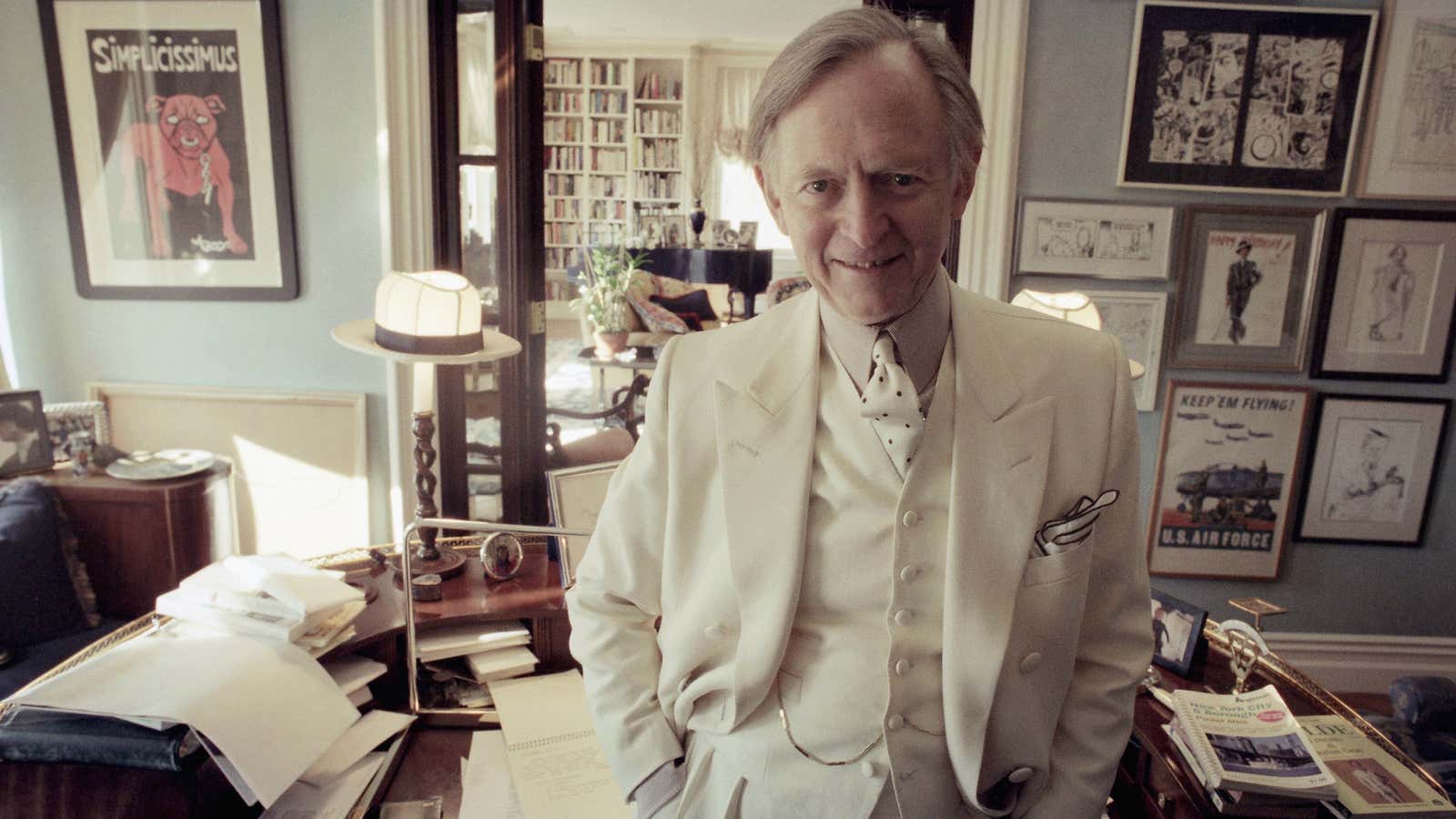Tom Wolfe had the ability to spot important social trends before the rest of us did.
One of his most underrated books is I am Charlotte Simmons, a novel about a college freshman at a university roughly modeled on Duke. When it was published in 2004, critics hated it. Wolfe’s skepticism of hook-up culture seemed prudish at the time. Other critics thought the book missed the zeitgeist of his earlier books. On both charges, Wolfe was vindicated by history. I still often think of I am Charlotte Simmons, more than others Wolfe wrote, because of Adam Gellin, a lesser-known character who is a nerdy, aspiring elitist who would inherit the globalized earth.
Every generation features people like Gellin, but his aspirations and view of the world were unique in the early 2000s and among older millennials. But he proved in tune with a world of greater globalization and rising inequality.
Gellin did not come from wealth: he was a striver, who did homework for basketball players for money. After meeting Charlotte, he tries to impress her by asking him to join his club of strivers, the “Millennial Mutants.” The mutants met to plot their path to achieving the most prestigious role in the globalized world: the public intellectual. They called themselves bad-ass Rhodies (as in, the Rhodes scholarship).
“The Bad-Ass Rhodie…that’s an idea that just sort of developed after the end of the cold war, or right after the Gulf War… Up to then students like us—you know students interested in ideas and concepts—which are what really move the world… the bad-ass is a sort of rogue intellectual. A bad-ass doesn’t want to do anything boring or low paid like… teaching… You’re an intellectual, but you want to operate on a higher level. This is a new millennium, you want to be a member of the millennial aristocracy, which is a meritocracy, but an aristo-meritocracy. You’re a mutant. You’re an evolutionary advance.”
He goes on to describes how to gain fame, recognition, and money for being a thought leader, while never gaining expertise in anything in particular. While still in college:
- Don’t waste your time with the tedious prescribed curriculum. Come up with your own major with a flashy name. Gellin’s was “The Intellectual Foundations of Globalization.” He explained that having “global” in the title is key.
- Travel to a developing country and expose yourself to extreme discomfort. Gellin went to Kenya, but “everyone has this idea Kenya’s too civilized. I taught English in a village out in the re-mote, out in the bush about four hours west of Nairobi by pickup truck.” he bragged.
After graduation:
- Don’t do a PhD, “which to most people means some kind of geek or creep.”
- Get a Rhodes scholarship, and if that does not work out a Fulbright or a Marshall (“but that’s a last resort. I mean that’s bottom fishing”).
- Get a high ranking job in the government—if that does not work out, get a job at McKinsey.
It may sound a bit ridiculous, and at the time (when I was a creepy graduate student) I thought it was a parody. I was going through life blissfully unaware of these critical life secrets. Over the years, I kept meeting and reading about young people in high-ranking positions whose life path mirrored exactly what Gellin described. In a world that celebrates people who can claim knowledge of everything, but expertise in nothing, this was a viable path to success.
I am Charlotte Simmons also addresses what goes on at top colleges. Studies have found attending an elite university college increases your earnings, even if you come from a poor family. Elite colleges don’t necessarily teach better skills, but they expose students to useful contacts. In retrospect, what hope did the rest of us have if we didn’t get into an elite school and meet Adam Gellin and his ilk?
No wonder so many people are angry.
